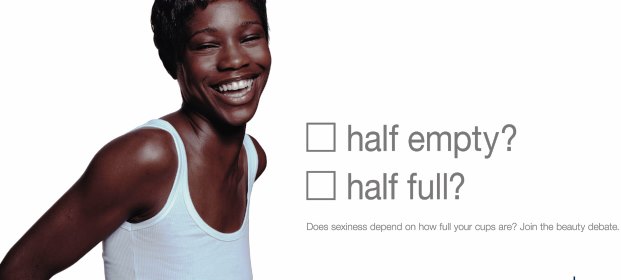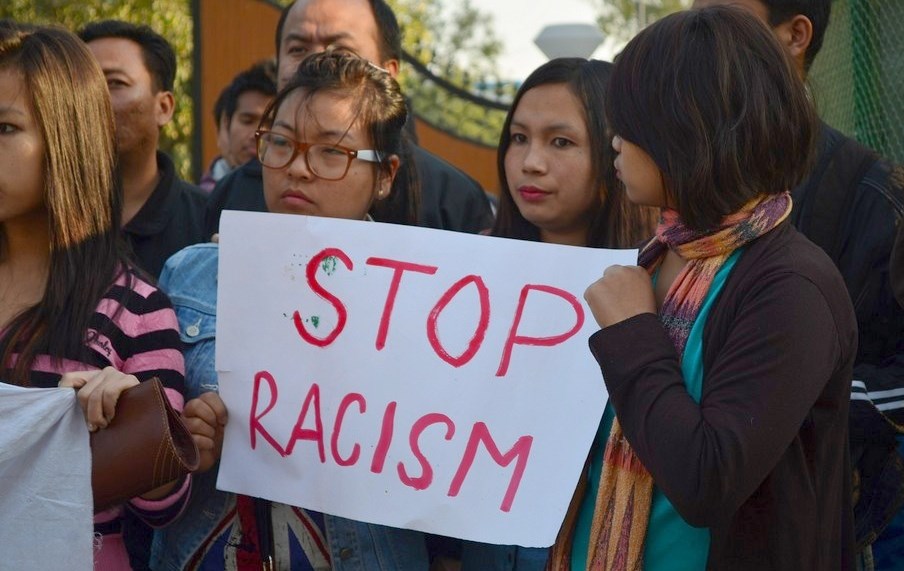Dove’s latest advertisement reasserts racist values and compels us to succumb to the popular beauty myth. Is the market ideology really a savior or is it same old patriarchy packaged in a new bottle?
Ananya Pathak | The New Leam
Dove’s latest advertisement surely does have racist connotations that cannot and should not be overlooked. While the fact that we live in a media induced world where the body image and one’s physical desirability are seen as key factors in addressing one’s worth what we cannot deny is the inherent injustice in this.

It must be asserted that any form of body shaming or propagation of a unilinear/monolithic idea of beauty must necessarily be problematized. From fairness creams and beauty products to slimming devices and pills- we are bombarded with the stereotypical image of beauty and made to believe via the popular culture that someone who does not fit into this idealistic image is ugly, unwanted or unworthy and thus must use every mean and mechanism to fit into the standardized model.
Women are the worst victims of this culture machinery and are the ones who are lured into this fallacy in the name of liberal promises like economic independence, purchasing power and accessibility to a wide range of marketable products. While it is impossible to deny the importance of financial independence for women in particular as it endows her with a sense of dignity and self-worth what we must begin to question is whether this sense of self-worth must solely be made dependent on her capacity or willingness to spend on beauty/body products alone? Why do we not associate her freedom or economic independence with her new sense of discovery of the self and the world, her contributions to social causes or her mere choice and potential to resist the lure of the market and the associated fetish of products?
http://https://www.youtube.com/watch?v=7DdM-4siaQw
The mainstream media’s propagation of the beauty myth and the kind of pressure that it puts upon women as ‘commodities’ is only a clear manifestation of the fact that in the neo-liberal world, the institution of patriarchy is only being aided by that of the market. Apart from its sophisticated promises, its glitz and glamour there seems to be nothing substantially different among the two in terms of the way that they treat women or their image in general. It is because of this that despite the assertion of feminist thinking and public condemnation of patriarchal and archaic value systems it has become difficult for us to do away with it even when we might be seduced into believing that the market is the savior of women.
The recent advertisement that a beauty and cosmetic company called Dove posted is a case in point. Like many other products it asserted the commonsensical and popular belief that only a fair/white skin complexion is desirable or beautiful and those who were deprived of it could access it through the use of their product!
The advertisement that we are talking about is that of a body wash showing a black woman taking off her shirt to reveal a white woman. The advertisement clearly reflects a racist legacy that operates in the minds of its creators who believe perhaps that black/dark skin is dirty and that white skin is necessarily clean or pure. Is it not important to address the question that even in today’s modern world with enough human rights movements and awareness to cultural differences we still continue to have advertisements that reinstate the age old and perverse racist mindset? Imagine, what kind of implications projections of this kind are likely to have on the minds of the children and the youth for whom the media has today become a major educator?
The advertisement clearly projects the fact that a white body is clean and pure while a black one is systematically dirty and unclean. It is time that we begin to strongly condemn advertisements like these which stand against the values of human dignity and egalitarianism. Without popular public uproar and an understanding of the subtle ways in which the market economy seduces women into accepting it as ‘saviors’ must also be carefully scrutinized.
Are we free in the market society or are we being victimized by the charm and glory of commodities in an equally oppressive and dominative system? Are white bodies cleaner, desirable and worthy of replication while all other kinds of complexions necessarily unworthy? What does beauty signify? In moments such as these we must have the courage to take the debate ahead of mere rhetoric and ask uncomfortable questions. What else is critical thinking if it does not allow us to contemplate our own conflicted existence?













